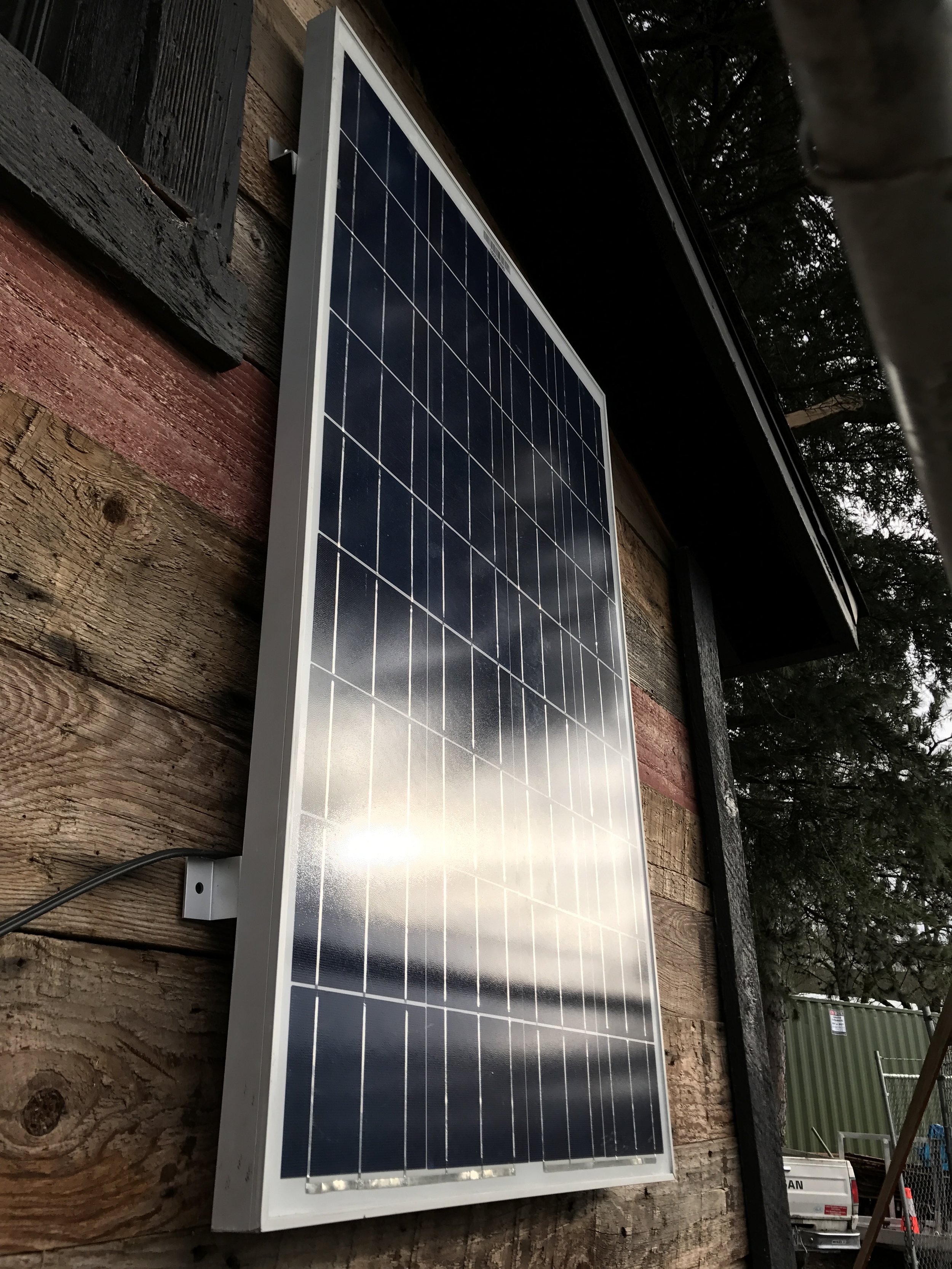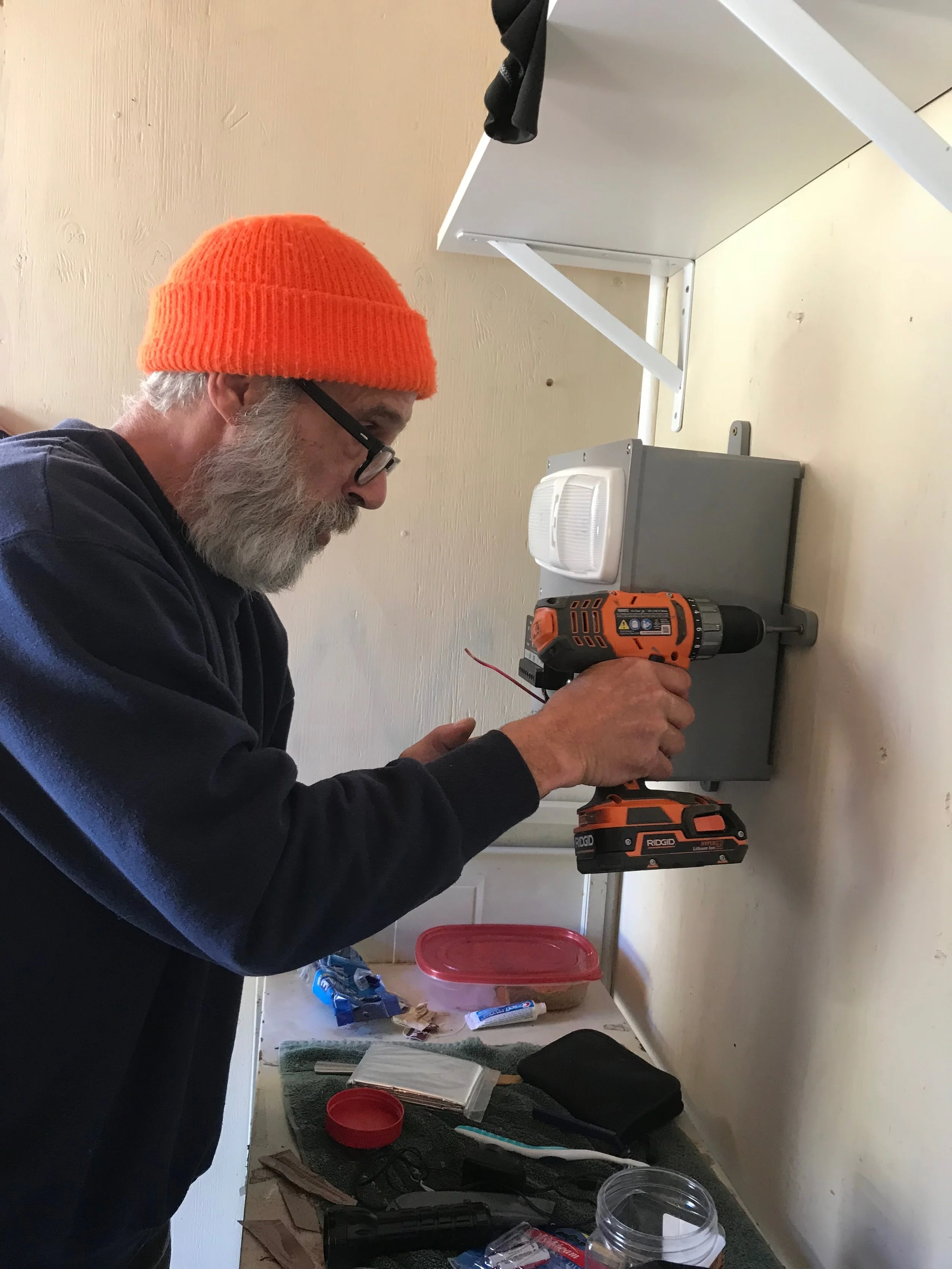The problem:
The U.S. Department of Housing and Urban Development estimates nearly 40,000 veterans are homeless each night. (see HUD)
In addition, approximately 1.4 million U.S. veterans are at risk of homelessness. (see NCHV)
For many veterans, a lack of social services, affordable housing, and long-term medical care is the main cause for homelessness. Others struggle with the lack of structure in civilian life.
Joe, a leader in the innovative houseless village movement in Portland and an 82nd Airborne Division Veteran, believes a lack of rigid structure in life after the military is the reason many veterans become homeless.
Joe told us he "grew up in a family with zero structure" and that part of why he joined the military was because he "wanted to know what was wrong and what was right, rather than having to figure it out the hard way."
He said he found what he was looking for in the U.S. Army. He learned new skills, earned money, and had new opportunities open up to him. The military was rigidly structured, with scheduled times for each activity, checklists of tasks to be completed, and duties to be fulfilled.
When he got out, that structure fell away.
“[It was hard not having] structure, nobody making sure you were doing the right thing. Because I had come from such an unstructured background, and got thrown right back into it (after the military), it caused me a great deal of difficulty. It absolutely affected me. I wonder how different my life would be if I had decided to reenlist.”
Within months of leaving the military, Joe was arrested and incarcerated. Like many of his fellow veterans, Joe struggled with the lack of structure in civilian life.
Many veterans struggle with life after the military. Kyle Evans is one of them. He believes veterans, especially injured ones, need more support. During his service in Iraq in 2007, Evans was seriously injured by an IED detonated beneath his Humvee. He recovered from 20 spinal taps and back surgery over thirty months in a government rehabilitation facility, and then he was released. Evans says he understands why many veterans do not receive the support they need.
“When [soldiers] return home and they’re not being tracked I can very well see how they can easily fall through the cracks, and you know a lot of them turn to alcohol and drugs to cope ... they don’t have the care or the support system when they return.”
Evans also advocates for improved social services and the institution of better VA tracking systems and community based NGOs to support veterans in their transition back into American society.
“[Soldiers need a] support system when they return to help them get adjusted to civilian life.”
What we can do:
For the tens of thousands of veterans that call the streets of our nation their homes, we must provide secure, comfortable, and community-based transitional housing, and provide them with amenities like light, electricity and shower and laundry facilities so they can rebuild their lives and contribute to their societies.
“We have men and women who have served our country honorably, and who are out here on the streets. None of them want to be on the streets, so we have to figure out ways to solve this problem as a community. ”
How Shine is helping:
Evans' beliefs tie deeply into the roots of what Shine stands for as an organization. We believe it is the responsibility of all Americans to work with the government to support our veterans in their times of crisis. Shine is working with houseless villages, pioneers in the affordable, temporary housing community movement for previously homeless individuals, to provide veterans and other homeless individuals in our city with these services. We have built and installed over 70 JuiceBoxes in 4 houseless villages and designed and built an off-grid, solar powered mobile shower for Hazelnut Grove. Some of our members are participating in the Catlin Gabel Community Engineering team's effort to design and prototype WashPod, an affordable off-grid mobile shower and laundry facilities, the first of which is to be installed at Right 2 Dream Too this winter.
Rampant homelessness among veterans is a critical issue, and one which requires more resources and attention from both governmental and non governmental institutions. Kyle Evans frames the duty of the American people eloquently:
“We have to have compassion, and we have to ensure we’re doing everything that we possibly can to take care of these individuals as they come home ... and to ensure that they’re able to be productive members of society.”
Join us:
Solar panels installed at Right 2 Dream Too with the support of the Lloyd EcoDistrict and eBay Portland (click to expand)
Sources:
“About Homeless Veterans.” National Coalition for Homeless Veterans (NCHV), nchv.org/index.php/news/media/background_and_statistics/.
“2016 PIT Estimate of Homeless Veterans by State.” United States Department of Housing and Urban Development (HUD), www.hudexchange.info/resources/documents/2016-PIT-Estimate-of-Homeless-Veterans-by-State.pdf.
Rethink Homelessness. YouTube, Google, 19 Mar. 2015, www.youtube.com/watch?v=-wIH9SCLEgE.
Special Thanks to Joe for his time and insight. This article could not have been composed without him.
Until next time,
Solomon Olshin
Note: This article was written in the context of the www.shinewithus.org website, and it is presumed that all readers of this content will be aware of the site's purpose. For those new to the Shine website, a glossary of terms used in the article above is below:
- Houseless: An individual living in a home that does not offer amenities that the majority of Americans enjoy, including grid-tied water, electricity, internet, etc. Houseless individuals often reside in communities, many of which are located in Portland or Eugene, OR, Seattle, or other Western U.S. cities.
- JuiceBox: See JuiceBox page
- ShowerPod: See ShowerPod page
- WashPod: See WashPod page


